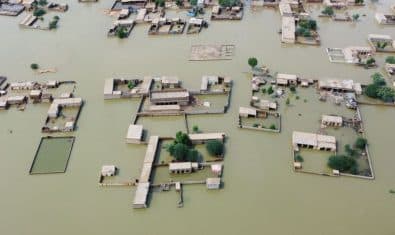As we see internet usage tremendously growing in developing countries, which have normally confined bandwidth to share with its users. Pakistan is one of such countries, which is putting a lot of (traffic) pressure on its international gateways, which at times exceeds the available limits in terms of capacity, consequently slowing the browsing amongst the masses.
Technology Review has published this article which reveals that computer scientists in Pakistan are building a system to boost download speeds in the developing world by letting people effectively share their bandwidth. The basic idea behind the research is develop a system that chops up popular pages and media files, allowing users to grab them from each other, building a grassroots Internet cache.
Here is the selected excerpt from article
In developed countries, Internet service providers (ISPs) create Web caches–machines that copy and store content locally – to boost their customers’ browsing speeds. When a user wants to view a popular website, the information can be pulled from the cache instead of from the computer hosting the website, which may be on the other side of the planet and busy with requests. Similar services are offered by content distribution companies such as Akamai, based in Cambridge, MA. High-traffic sites pay Akamai to host copies of their content in multiple locations, and users are automatically served up a copy of the site from the cache closest to them.
Umar Saif’s team at LUMS is developing DonateBandwidth, a system inspired by the BitTorrent peer-to-peer protocol that is popular for trading large music, film, and program files. With BitTorrent, people’s computers swap small pieces of a file during download, reducing the strain placed on the original source.
DonateBandwidth works in much the same way but lets people share more than just large files. When users try to access a website or download a file, a DonateBandwidth program running on their machine checks first with the peer-to-peer cache to see if the data is stored there. If so, it starts downloading chunks of the file from peers running the same software, while also getting parts of the file through the usual Internet connection. The software could allow people in countries that have better Internet connections to donate their bandwidth to users in the developing world.





















Good Initiative.
great concept! thumbs up